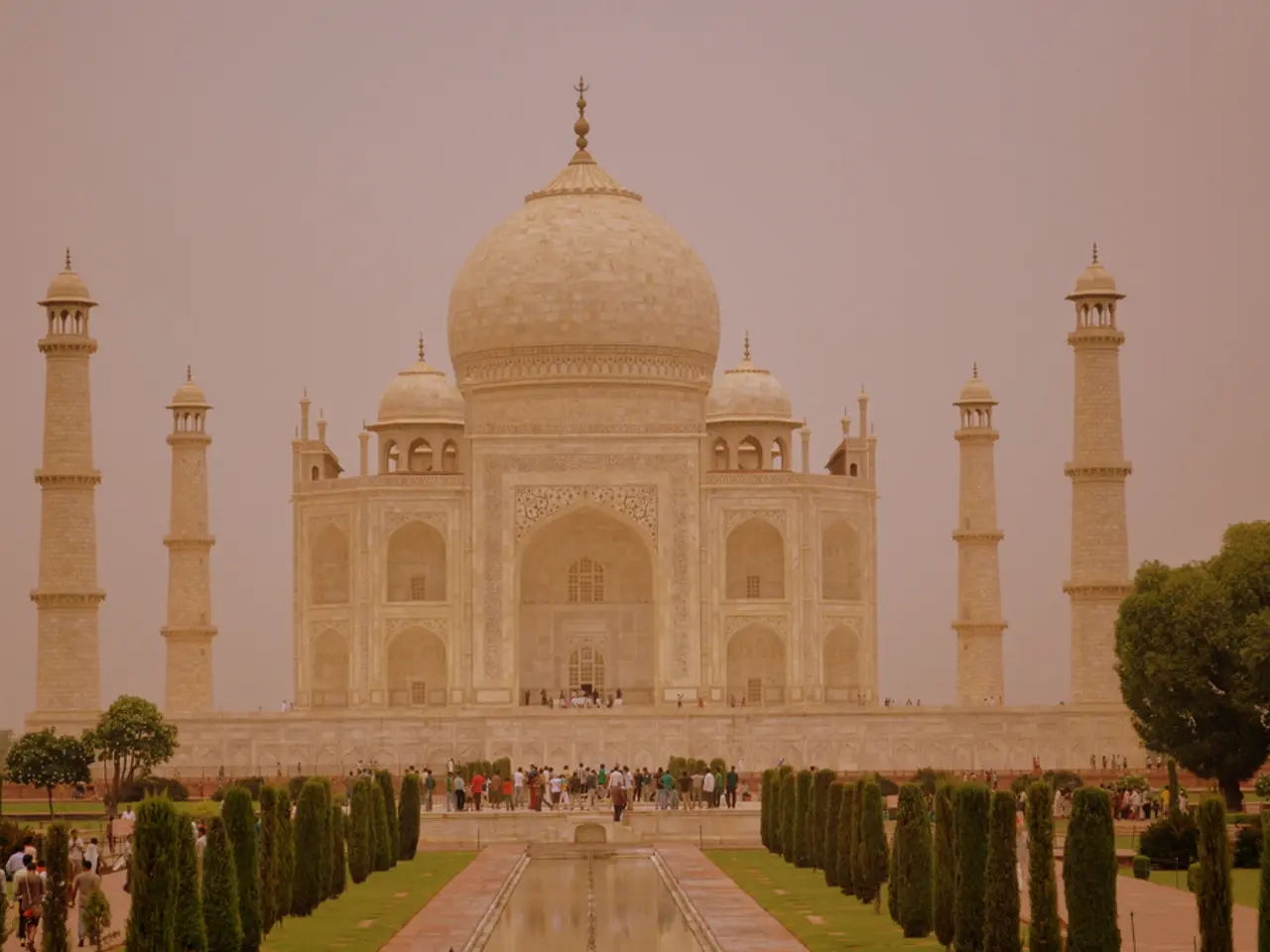Celebratory Address of the Indian Ambassador on India's 79th Year of Freedom
India celebrated its 79th Independence Day on [date], marking another milestone in the country's journey towards becoming a global powerhouse. The occasion was marked by Prime Minister Narendra Modi's speech, which highlighted significant economic achievements and ambitious future projections.
The speech underscored the government's commitment to India's 'Atmanirbhar' program, an initiative aimed at making the country self-reliant and an integral part of global supply chains through the 'Make in India' initiative. The Prime Minister outlined a vision for a Viksit Bharat (Developed India) by 2047, with a focus on self-reliance, innovation, and global competitiveness.
Economically, India has come a long way since its independence in 1947. From a fragile post-colonial economy with a GDP of about Rs. 2.7 lakh crore, India has grown to a $3.9 trillion economy in 2025, ranking as the 4th or 5th largest economy globally. The country has experienced robust annual growth averaging 6% since 1951, with a peak growth rate of 22.6% in 2021 post-pandemic.
Key economic achievements cited include a booming startup ecosystem hosting over 100 unicorns, digital economy breakthroughs like UPI, Aadhaar, and Jan Dhan Yojana accelerating financial inclusion, and leadership in IT services, pharmaceuticals, and exports. The Indian government plans next-generation GST reforms to ease tax burdens, particularly helping MSMEs and consumers, by Diwali 2024.
For future projections, the Prime Minister emphasised the need for strategic economic autonomy with a strong domestic manufacturing base, including the rollout of India’s first "Made in India" semiconductor chip by end of 2024. The government also aims to expand clean energy capacity tenfold by 2047, with new nuclear reactors and aggressive increases in solar, hydrogen, and hydro energy.
Other highlights include a new ₹1 lakh crore PM Viksit Bharat Rozgar Yojana to provide first private-sector jobs to three crore youth with monthly support, a Reform Task Force to accelerate economic growth, continued investments in high-tech sectors, ambitious growth in space technology, and a 'Zero Tolerance' approach towards terrorism.
India's commitment to democracy, pluralism, and unity in diversity, as well as its role in promoting global peace, stability, and prosperity, were also emphasised during the speech. The country has taken leadership roles on global issues, including reforming multilateral institutions like the UN Security Council and addressing issues of climate change, affordable energy access, food security, etc.
The Prime Minister's historic visit to Kuwait in December 2024 underscores the importance of India's relationship with Kuwait. The relationship was upgraded to a 'Strategic Partnership' during the visit, and both countries expressed their commitment to strengthening and expanding this relationship.
This year, bilateral trade and investments between India and Kuwait are growing and expected to grow at a greater pace. The Indian Embassy prioritises the welfare and well-being of the Indian community in Kuwait, with the country extending greetings to Indian nationals and persons of Indian origin in Kuwait.
India remains committed to its ancient philosophy 'Vasudhaiva Kutumbakam', which guides its foreign policy, and continues to play a vital role in promoting global peace, stability, and prosperity. The country's approach to fighting terrorism is through its 'New Normal' approach, as demonstrated by its recent resolute stance against cross-border terrorism through 'Operation Sindoor'.
In conclusion, India's 79th Independence Day speech presented a narrative of the country's transformation from dependence to self-reliance and technological leadership, anchored by economic growth, job creation, and strategic autonomy aimed at making India a global developed economy within two decades.
- As part of his 79th Independence Day speech, Prime Minister Narendra Modi articulated a vision for a Viksit Bharat (Developed India), aiming to achieve this by 2047, focusing on self-reliance, innovation, and global competitiveness.
- The Prime Minister's speech emphasized the importance of strategic economic autonomy, highlighting plans for a strong domestic manufacturing base, including the rollout of India's first "Made in India" semiconductor chip by end of 2024, and expanding clean energy capacity tenfold by 2047.







